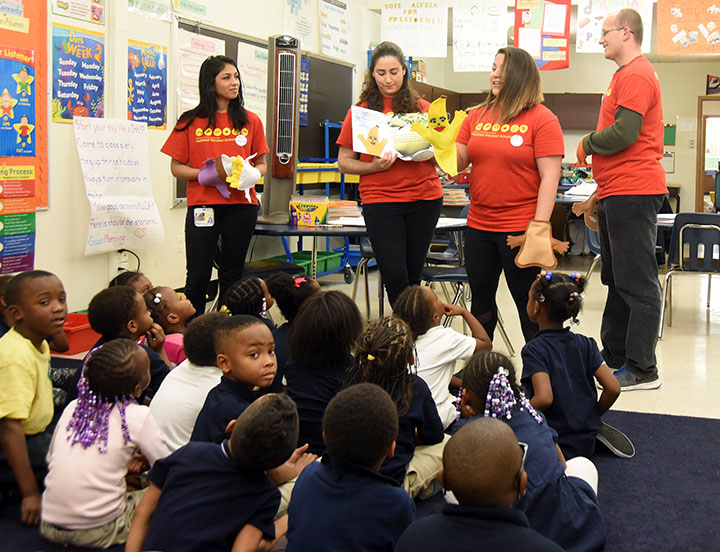Healthiest Maryland Schools
- ExpandAbout
- ExpandPrograms
- ExpandResearch and Practice
- ExpandLife Course Framework
- ExpandChild and Adolescent Health
- ExpandMaternal, Fetal and Perinatal Health
- ExpandPopulation and Health
- ExpandWomen's, Sexual and Reproductive Health
- ExpandLife Course Framework
- ExpandPeople
- ExpandNews and Events
- Contact
- Make a Gift
- About
- Programs
- Research and Practice
- Life Course Framework
- Child and Adolescent Health
- Maternal, Fetal and Perinatal Health
- Population and Health
- Women's, Sexual and Reproductive Health
- Life Course Framework
- People
- News and Events
- Contact
- Make a Gift
About Us

The Healthiest Maryland Schools, funded by the Maryland Community Health Resources Commission since 2014, aimed to reduce the prevalence of childhood obesity by implementing evidence-based interventions within elementary schools, working directly with parents and caregivers, and training medical staff at the Pediatrics at Midtown Primary Care Clinic.
The flagship component of HMS was its after-school programming. HMS After-school programming targeted low-income, urban children living in West Baltimore City and focused on increasing opportunities for Healthy Eating and Active Living among children in Kindergarten – 5th grade. Programming was delivered by inter-disciplinary teams of UMB students from multiple professional schools (Medicine, Nursing, Dentistry, etc.) and the graduate school, referred to as “Health Leaders.” Health Leaders delivered two evidence-based interventions (Coordinated Approach to Child Health and Hip Hop to Health) to children enrolled in after-school programs in six West Baltimore City elementary schools. Each lesson included health/nutrition education, physical activity, and a healthy snack prepared by the children. The Healthiest Maryland Schools Program also supported the families, children, and communities by offering family health and fitness nights, health fairs, and other healthy eating/active living opportunities at the schools.

Objectives
- Evaluate the impact of a multilevel intervention, combining evidence-based obesity prevention programs involving primary care, the school environment, and family involvement on Healthy Eating Active Living opportunities and knowledge among low-income, urban, predominantly African American children in kindergarten – 5th grade in West Baltimore schools
- Evaluate the impact of an inter-professional education model on professional and graduate students’ understanding of collaborative approaches to solve health issues, and self-efficacy to creatively teach nutrition education and physical activity to children from urban resource-limited environments
The Team
PI: Erin Hager, PhD, Associate Professor
CO-PI: Rebecca Carter, MD
University of Maryland, School of Medicine
